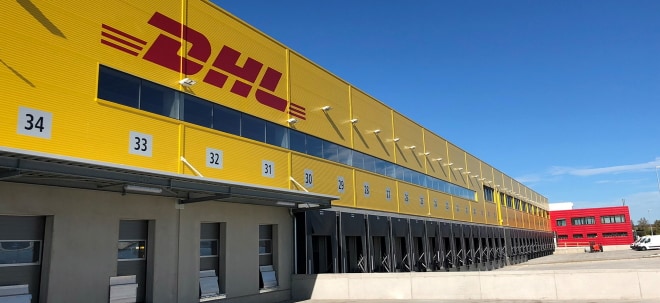Global Anticancer Drugs Market Booms with 11.3% CAGR, Driven by Targeted Therapy & Biomarkers | Valuates Reports
Anticancer Drugs Market is Segmented by Type (Cancer Immunotherapy, Targeted Therapy, Chemotherapy), by Application (Lung Cancer, Breast Cancer, Prostate Cancer, Blood-related Cancer).
BANGALORE, India, June 5, 2025 /PRNewswire/ -- The global market for Anticancer Drugs was valued at USD 206090 Million in the year 2024 and is projected to reach a revised size of USD 430540 Million by 2031, growing at a CAGR of 11.3% during the forecast period.
Claim Your Free Report: https://reports.valuates.com/request/sample/QYRE-Auto-25M6948/Global_Anticancer_Drugs_Market
Major Factors Driving the Growth of Anticancer Drugs Market:
The anticancer drugs market is experiencing robust growth fueled by rising cancer incidence, expanding treatment options, and technological advances. With increasing adoption of personalized medicine, immunotherapy, and biosimilars, the landscape is evolving rapidly. Pharmaceutical companies are heavily investing in R&D to develop drugs targeting various cancer types, leading to a strong pipeline.
Regulatory agencies are offering expedited approvals for breakthrough therapies, encouraging innovation. The market encompasses chemotherapy, targeted therapy, hormone therapy, and biologics, catering to both early and advanced-stage cancers. As cancer becomes a global health priority, the demand for accessible, effective, and cost-efficient treatment solutions is expected to grow steadily, sustaining long-term market expansion.
Unlock Insights: View Full Report Now! https://reports.valuates.com/market-reports/QYRE-Auto-25M6948/global-anticancer-drugs
TRENDS INFLUENCING THE GROWTH OF THE ANTICANCER DRUGS MARKET:
Cancer immunotherapy is significantly propelling the growth of the anticancer drugs market due to its ability to harness the body's immune system to combat malignant cells more effectively than traditional methods. Unlike chemotherapy, which often damages healthy cells, immunotherapy offers targeted action with fewer side effects, increasing patient preference and clinician recommendation. The emergence of immune checkpoint inhibitors, CAR T-cell therapies, and monoclonal antibodies has broadened treatment options across multiple cancer types. Its success in treating cancers that were previously resistant to standard therapies has generated strong clinical interest. Additionally, rising investments, expanding FDA approvals, and ongoing research collaborations between biotech firms and pharmaceutical companies are further accelerating the market demand for immunotherapy-based anticancer drugs.
Targeted therapy is a crucial driver in the anticancer drugs market as it allows for the development of treatments designed to interfere with specific molecular targets associated with cancer progression. This precision-based approach minimizes damage to healthy tissues and improves the effectiveness of cancer treatment. Innovations in genomics and molecular diagnostics have enabled oncologists to identify mutations and biomarkers, leading to tailored therapies for individuals. Drugs targeting proteins like HER2, EGFR, and BRAF are now standard in treating cancers like breast, lung, and melanoma. With fewer side effects and improved patient outcomes, targeted therapies are preferred over conventional cytotoxic drugs. As personalized medicine gains ground globally, targeted therapy continues to fuel steady market expansion.
Lung cancer remains a dominant force in driving the anticancer drugs market due to its high global incidence and mortality rate. The complex nature of lung cancer requires a broad arsenal of treatment options, including chemotherapy, targeted therapies, and immunotherapies. With advancements in early detection and biomarker testing, patients are now eligible for precision treatments that significantly improve survival rates. Governments and healthcare agencies are increasing screening programs, particularly in high-risk populations like smokers and the elderly, driving diagnosis rates and treatment uptake. The introduction of novel drugs for advanced stages of lung cancer and increased awareness has led to growing demand, significantly contributing to market revenue.
The steady increase in global cancer cases is a primary factor propelling the anticancer drugs market. Factors such as aging populations, lifestyle changes, exposure to carcinogens, and rising obesity rates are contributing to this surge. According to WHO, cancer is now one of the leading causes of death globally, placing immense pressure on healthcare systems to deliver effective treatments. This rising demand compels pharmaceutical companies to accelerate drug development and approval pipelines. Public and private funding for cancer research is also increasing to support this urgency. As a result, the anticancer drugs market is expanding to cater to diverse cancer types and stages, creating a consistent need for innovative and accessible therapies.
Government initiatives and healthcare policies play a vital role in boosting the anticancer drugs market. Many countries are expanding public healthcare coverage for cancer treatment, especially in developed regions like North America and Europe. Subsidized treatment programs and insurance reimbursements have made costly anticancer therapies more accessible to a broader patient base. Special provisions for rare cancers and orphan drug designations further incentivize pharmaceutical firms to innovate. Public institutions like the National Cancer Institute (NCI) and Cancer Research UK are increasing investments in clinical trials and drug discovery. Such funding and supportive policies reduce the financial burden on patients and encourage consistent demand for effective cancer medications.
Biomarker research is revolutionizing how anticancer drugs are developed, prescribed, and monitored. Biomarkers help predict disease progression, treatment response, and potential side effects, allowing clinicians to personalize therapies for better outcomes. Companion diagnostics, often co-developed with anticancer drugs, guide targeted treatment decisions, improving precision and efficacy. The integration of biomarkers in clinical trials accelerates drug approvals by identifying suitable patient cohorts. This has led to faster commercialization of breakthrough therapies. Biomarker-driven treatments also reduce trial-and-error prescribing, improving healthcare efficiency. As the field of precision oncology expands, biomarker research is becoming indispensable, thereby acting as a powerful growth catalyst for the anticancer drugs market.
Emerging markets across Asia, Latin America, and Africa are witnessing improved healthcare infrastructure, which supports wider access to cancer diagnosis and treatment. Governments are investing in public hospitals, telemedicine services, and awareness campaigns to facilitate early detection and treatment. Pharmaceutical companies are also forming partnerships in these regions to launch affordable versions of branded therapies. Access to generics and biosimilars further supports affordability. Mobile health technologies and e-pharmacies are helping bridge urban-rural gaps in drug delivery. With growing income levels and rising cancer burden in these regions, the demand for anticancer drugs is expanding. This regional growth trend adds significant momentum to the global market.
Claim Yours Now! https://reports.valuates.com/api/directpaytoken?rcode=QYRE-Auto-25M6948&lic=single-user
ANTICANCER DRUGS MARKET SHARE
Global key players of Anticancer Drugs include Merck & Co, Bristol-Myers Squibb, Roche, Novartis, Johnson & Johnson, etc. The top five players hold a share over 55%.
North America is the largest market, and has a share of about 55%, followed by Asia-Pacific and Europe with 21% and 19%, separately. Regionally, North America leads the anticancer drugs market due to its advanced healthcare infrastructure, high cancer prevalence, and strong research funding. The U.S. accounts for a significant share, with widespread access to innovative therapies and insurance coverage.
In terms of product type, Targeted Therapy is the largest segment, occupied for a share of 58%. In terms of application, Blood-related Cancer has a share of about 23 percent.
Key Companies:
- Novartis
- Pfizer Inc
- Amgen Inc
- Astrazeneca plc
- Merck
- AbbVie
- Johnson & Johnson
- Gilead Sciences
- Roche
- Bristol–Myers Squibb
- Takeda
- Merck KGaA
- Seagen
- Eli Lilly
- Ono Pharmaceutical
- GSK
- Exelixis Inc
- Regeneron
- Innovent
- Hengrui Medicine
Purchase Regional Report: https://reports.valuates.com/request/regional/QYRE-Auto-25M6948/Global_Anticancer_Drugs_Market
SUBSCRIPTION
We have introduced a tailor-made subscription for our customers. Please leave a note in the Comment Section to know about our subscription plans.
DISCOVER MORE INSIGHTS: EXPLORE SIMILAR REPORTS!
- Anthracycline Anticancer Drugs Market
- The global market for Platinum-based Anticancer Drugs was estimated to be worth USD 1541.9 Million in 2023 and is forecast to a readjusted size of USD 1788.9 Million by 2030 with a CAGR of 2.1% during the forecast period 2024-2030.
- Oncology Generic Injectable Drugs Market
- Ovarian Cancer Treatment Drugs Market
- Alkylating Agent Antineoplastic Drugs Market
- The global Oncology Drugs Market revenue was USD 197440 Million in 2022 and is forecast to a readjusted size of USD 395270 Million by 2029 with a CAGR of 10.3% during the review period (2023-2029).
- The global market for Oncology Treatment Drug was estimated to be worth USD 197440 Million in 2023 and is forecast to a readjusted size of USD 342140 Million by 2030 with a CAGR of 8.0% during the forecast period 2024-2030.
- Esophageal Cancer Drugs Market
- Pharmaceutical Grade Anhydrous Piperazine Market
- Platinum-based Anticancer APIs Market
DISCOVER OUR VISION: VISIT ABOUT US!
Valuates offers in-depth market insights into various industries. Our extensive report repository is constantly updated to meet your changing industry analysis needs.
Our team of market analysts can help you select the best report covering your industry. We understand your niche region-specific requirements and that's why we offer customization of reports. With our customization in place, you can request for any particular information from a report that meets your market analysis needs.
To achieve a consistent view of the market, data is gathered from various primary and secondary sources, at each step, data triangulation methodologies are applied to reduce deviance and find a consistent view of the market. Each sample we share contains a detailed research methodology employed to generate the report. Please also reach our sales team to get the complete list of our data sources.
GET A FREE QUOTE
Valuates Reports
sales@valuates.com
For U.S. Toll-Free Call 1-(315)-215-3225
WhatsApp: +91-9945648335
Website: https://reports.valuates.com
Blog: https://valuatestrends.blogspot.com/
Pinterest: https://in.pinterest.com/valuatesreports/
Twitter: https://twitter.com/valuatesreports
Facebook: https://www.facebook.com/valuatesreports/
YouTube: https://www.youtube.com/@valuatesreports6753
https://www.facebook.com/valuateskorean
https://www.facebook.com/valuatesspanish
https://www.facebook.com/valuatesjapanese
https://valuatesreportspanish.blogspot.com/
https://valuateskorean.blogspot.com/
https://valuatesgerman.blogspot.com/
https://valuatesreportjapanese.blogspot.com/
Logo: https://mma.prnewswire.com/media/1082232/Valuates_Reports_Logo.jpg
![]() View original content to download multimedia:https://www.prnewswire.com/news-releases/global-anticancer-drugs-market-booms-with-11-3-cagr-driven-by-targeted-therapy--biomarkers---valuates-reports-302473993.html
View original content to download multimedia:https://www.prnewswire.com/news-releases/global-anticancer-drugs-market-booms-with-11-3-cagr-driven-by-targeted-therapy--biomarkers---valuates-reports-302473993.html
SOURCE Valuates Reports


